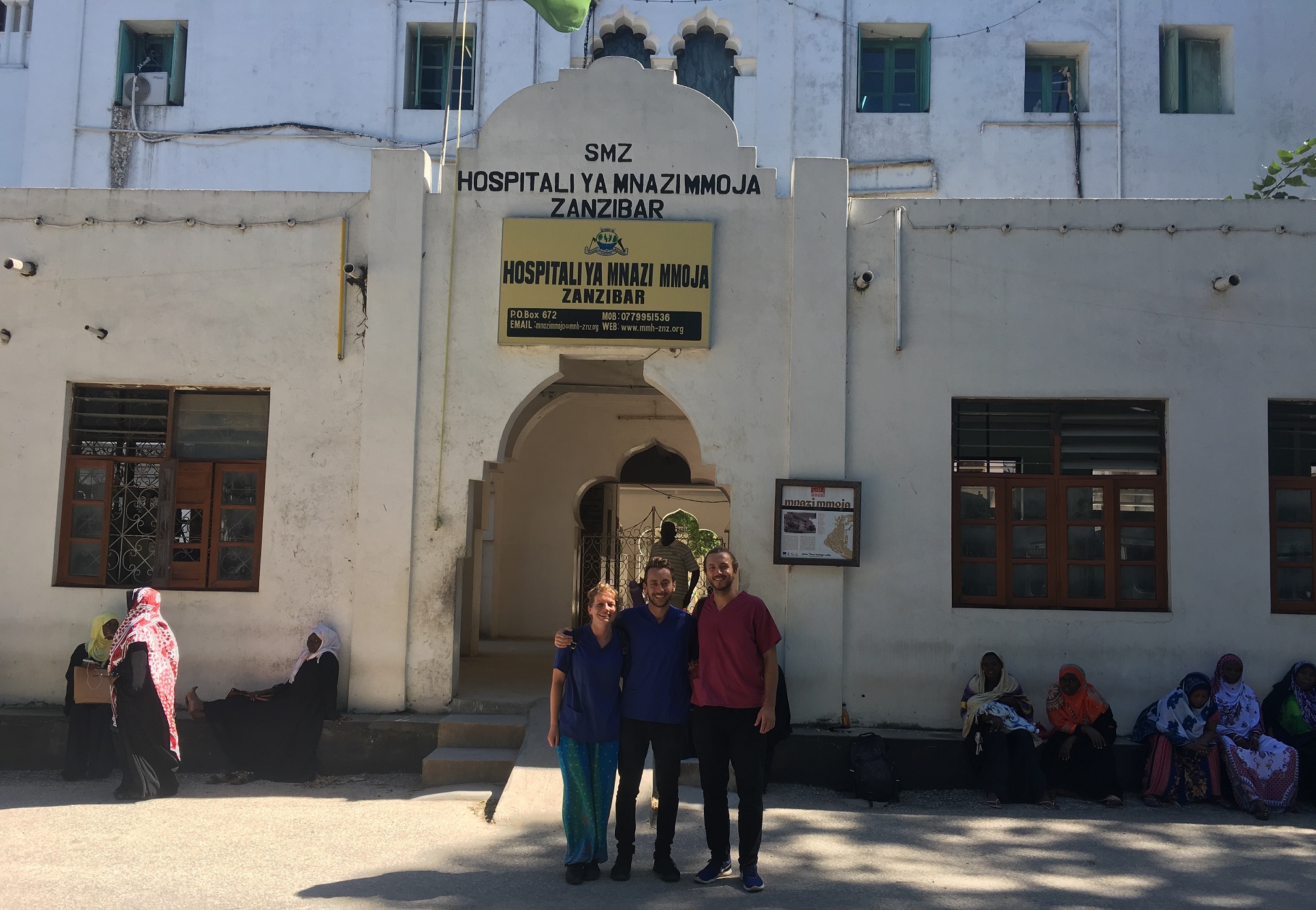Mnazi Mmoja Hospital, Zanzibar, Tanzania – Medical Elective

July 12th, 2019
I completed my medical elective in Zanzibar, Tanzania, writes Amy Arnold (pictured with colleagues). Alongside two other medical students, I spent six weeks living in Stone Town, which is the largest city and historic capital of Zanzibar. Zanzibar is a fascinating island and is a product of a mixture of cultural influences from the Middle East, Portugal and mainland Africa. It has a population of around 1.5 million, 99% of whom are Muslim. Despite the luxury impression that exudes from the white sandy beaches and rapidly expanding hotel resort industry, the average annual income of local people is US$250. This level of poverty was very apparent to me during my hospital placement.
The hospital I worked in was the Mnazi Mmoja hospital, situated within Stone Town. The Mnazi Mmoja is the only government-run hospital in Zanzibar and serves the entirety of the population, the majority of whom are unable to afford private healthcare services. My first impression of the hospital was therefore as could be expected: very overcrowded with waiting areas overflowing with patients, many of whom had travelled very long distances to be there. The hospital was much bigger than I had anticipated and was divided into multiple departments, medical and surgical wards and outpatient clinic buildings.
I chose to experience the running of the paediatric department as I have particular interests in paediatrics, fertility and family health medicine. I was welcomed into the paediatric medical team on my first day and was shown around the wards, the neonatal department and the clinic rooms by one of the local doctors. Every day began with a 7.30am meeting to discuss new patient admissions, followed by a three-hour long ward round to visit all the inpatients. Daily outpatient clinics were also held in the paediatric department with a different speciality focused on each day, including a neurological clinic, sickle cell clinic and a malnourishment clinic.
I was fortunate to be welcomed into all aspects of the paediatric department and was really grateful to provide my input and examine patients with the medical team. I learnt a lot by witnessing rare conditions that are much less common or would have been treated at a much earlier age in specialist hospitals in the UK. For example, children living with neurological conditions due to problems during childbirth were prevalent, as well as some with congenital heart conditions which would have been operated on at an early age in the UK.
On public holidays and at weekends we made the most of living on such a beautiful, culturally fascinating island. We enjoyed exploring the UNESCO World Heritage Site of Stone Town, visiting smaller villages across the island, as well as socialising with the local people. Exercising is an important part of the Zanzibari culture.
Often, we joined the daily crowds of locals assembling at the beach to do running circuits, dances and a variety of fitness routines. The local people were extremely friendly and welcoming. For me, they were definitely a highlight of my experience in Zanzibar.
I am extremely grateful to the Barts Guild for offering me the Medical Elective Grant. I feel very fortunate to have had this six-week experience in Zanzibar which wouldn’t have been possible without this support. The medical placement taught me a huge deal about the challenges faced by a public-run hospital in a third-world country. It has also, without a doubt, inspired me to carry out further projects in places lacking in resources and in need of medical support. I will always remember the experiences I gained from this elective throughout my future medical career.
AMY ARNOLD
